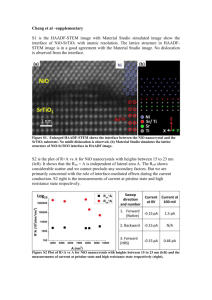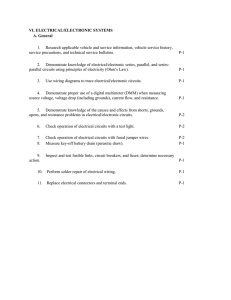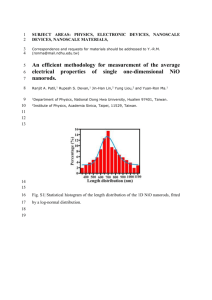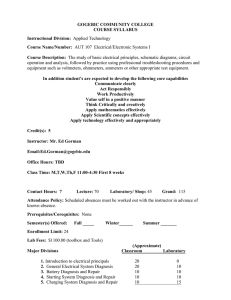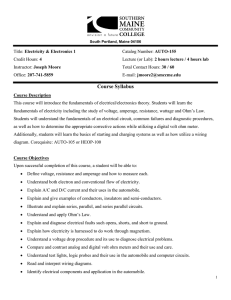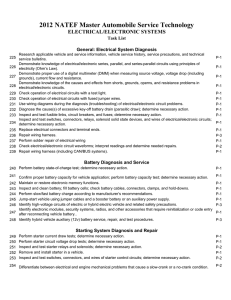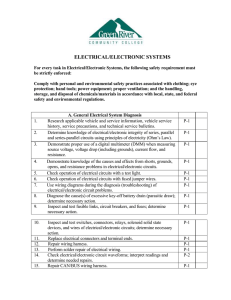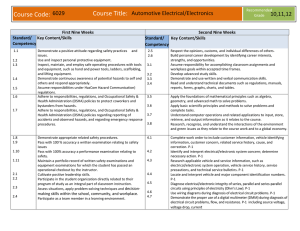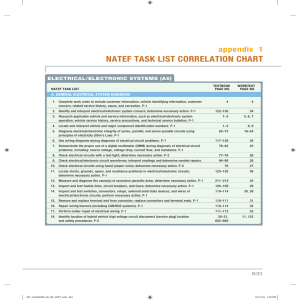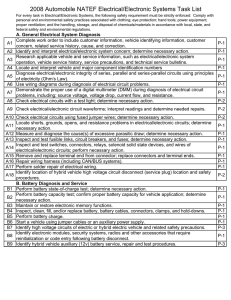NATEF AUTOMOTIVE TASK LIST AUT 131 – ELECTRICAL SYSTEMS
advertisement
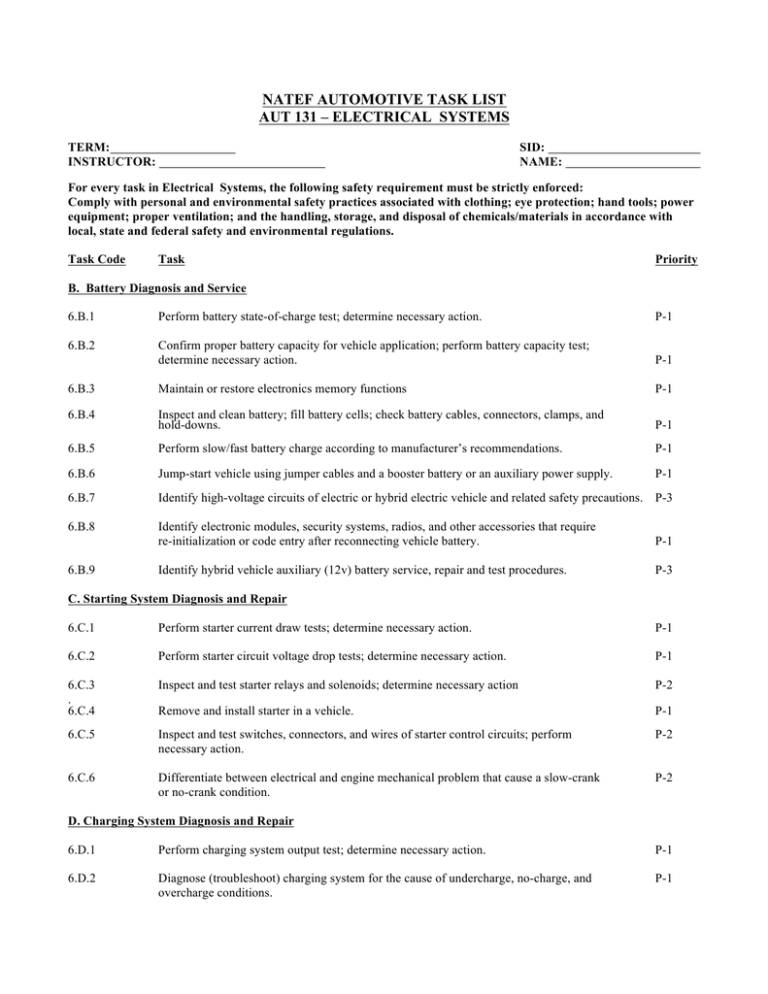
NATEF AUTOMOTIVE TASK LIST AUT 131 – ELECTRICAL SYSTEMS TERM: INSTRUCTOR: SID: NAME: For every task in Electrical Systems, the following safety requirement must be strictly enforced: Comply with personal and environmental safety practices associated with clothing; eye protection; hand tools; power equipment; proper ventilation; and the handling, storage, and disposal of chemicals/materials in accordance with local, state and federal safety and environmental regulations. Task Code Task Priority B. Battery Diagnosis and Service 6.B.1 Perform battery state-of-charge test; determine necessary action. P-1 6.B.2 Confirm proper battery capacity for vehicle application; perform battery capacity test; determine necessary action. P-1 6.B.3 Maintain or restore electronics memory functions P-1 6.B.4 Inspect and clean battery; fill battery cells; check battery cables, connectors, clamps, and hold-downs. P-1 6.B.5 Perform slow/fast battery charge according to manufacturer’s recommendations. P-1 6.B.6 Jump-start vehicle using jumper cables and a booster battery or an auxiliary power supply. P-1 6.B.7 Identify high-voltage circuits of electric or hybrid electric vehicle and related safety precautions. P-3 6.B.8 Identify electronic modules, security systems, radios, and other accessories that require re-initialization or code entry after reconnecting vehicle battery. P-1 Identify hybrid vehicle auxiliary (12v) battery service, repair and test procedures. P-3 6.B.9 C. Starting System Diagnosis and Repair 6.C.1 Perform starter current draw tests; determine necessary action. P-1 6.C.2 Perform starter circuit voltage drop tests; determine necessary action. P-1 6.C.3 . 6.C.4 Inspect and test starter relays and solenoids; determine necessary action P-2 Remove and install starter in a vehicle. P-1 6.C.5 Inspect and test switches, connectors, and wires of starter control circuits; perform necessary action. P-2 6.C.6 Differentiate between electrical and engine mechanical problem that cause a slow-crank or no-crank condition. P-2 D. Charging System Diagnosis and Repair 6.D.1 Perform charging system output test; determine necessary action. P-1 6.D.2 Diagnose (troubleshoot) charging system for the cause of undercharge, no-charge, and overcharge conditions. P-1 6.D.3 Inspect, adjust, or replace generator (alternator) drive belts; check pulleys, and tensioners for wear; check pulley and belt alignment. P-1 6.D.4 Remove, inspect, and re-install generator (alternator) P-1 6.D.5 Perform charging circuit voltage drop tests; determine necessary action. P-1
